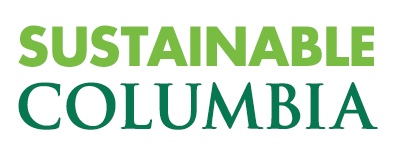Implementing Plan 2030
How the University will achieve net zero by 2050 through two action pathways.
Columbia’s ten-year sustainability plan, Plan 2030, includes six focus areas in which the University has set goals and strategies to reach net zero by 2050. The Office of Sustainability has broken the implementation of these strategies into two paths: Building Net Zero (BNZ) and Living Net Zero (LNZ).
BNZ refers to the operational decisions of the University surrounding energy systems, construction, and other high-level activities that result in Scope 1 and Scope 2 emissions. The strategies that fall under BNZ include:
- Electrify Columbia's campuses
- Electrify fleets and boost charging capabilities
- Sustainable Design and Construction policy to build to net zero
Read more about Columbia’s progress on BNZ goals.
LNZ refers to actions Columbia’s schools, departments, and individuals can take to reduce environmental impact and contribute to Columbia’s sustainability goals. This work directly targets Scope 3 emissions. Early data indicates that about 70% of Columbia's emissions come from Scope 3 activities. To reach net zero by 2050, we'll need to reduce all categories of Scope 3 while concurrently tackling Scopes 1 and 2.
The strategies that fall under LNZ include our new Think Tank program: series of collaborative workshops focused on cutting Scope 3 emissions at the school level. Representatives from each participating school will attend a series of meetings in one or more of the focus areas:
- Business Travel
- Purchasing of Goods
- Waste and Reuse
The meetings are facilitated by the Office of Sustainability with breakout groups and planned activities for convergent and divergent thinking. Participants will end the Think Tank track with vetted, innovative solutions to present to their leadership that will help reduce their school's environmental footprint or otherwise improve sustainability.
This process will build the groundwork for a Sustainability Action Plan for each school, which will eventually grow to encompass all Scope 3 categories. Think Tanks have already begun meeting to tackle each of the focus areas. Learn more about the Think Tank kickoff event in February.
Other initiatives that fall under LNZ include Columbia’s ReUse Program, which allows University affiliates to donate and shop for University-owned office furniture, lab equipment, electronics and more to keep these items out of the landfill.
Other LNZ Initiatives
To keep tabs on updates from Columbia’s BNZ and LNZ efforts, click on each of the news tags below.
